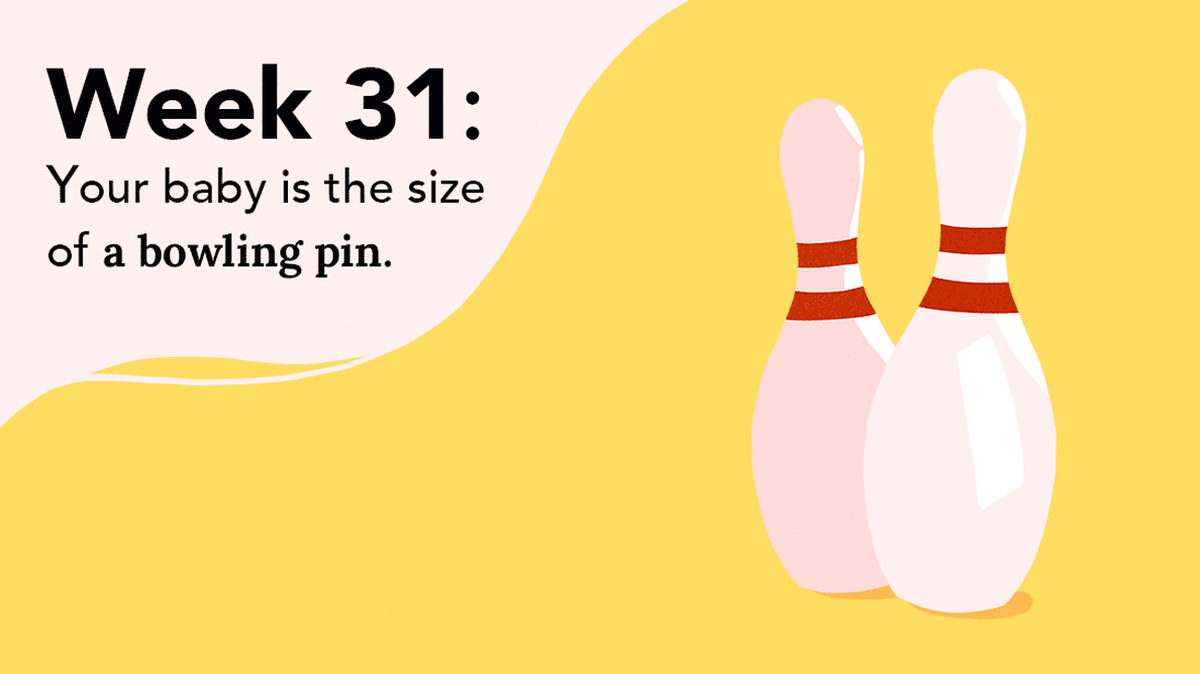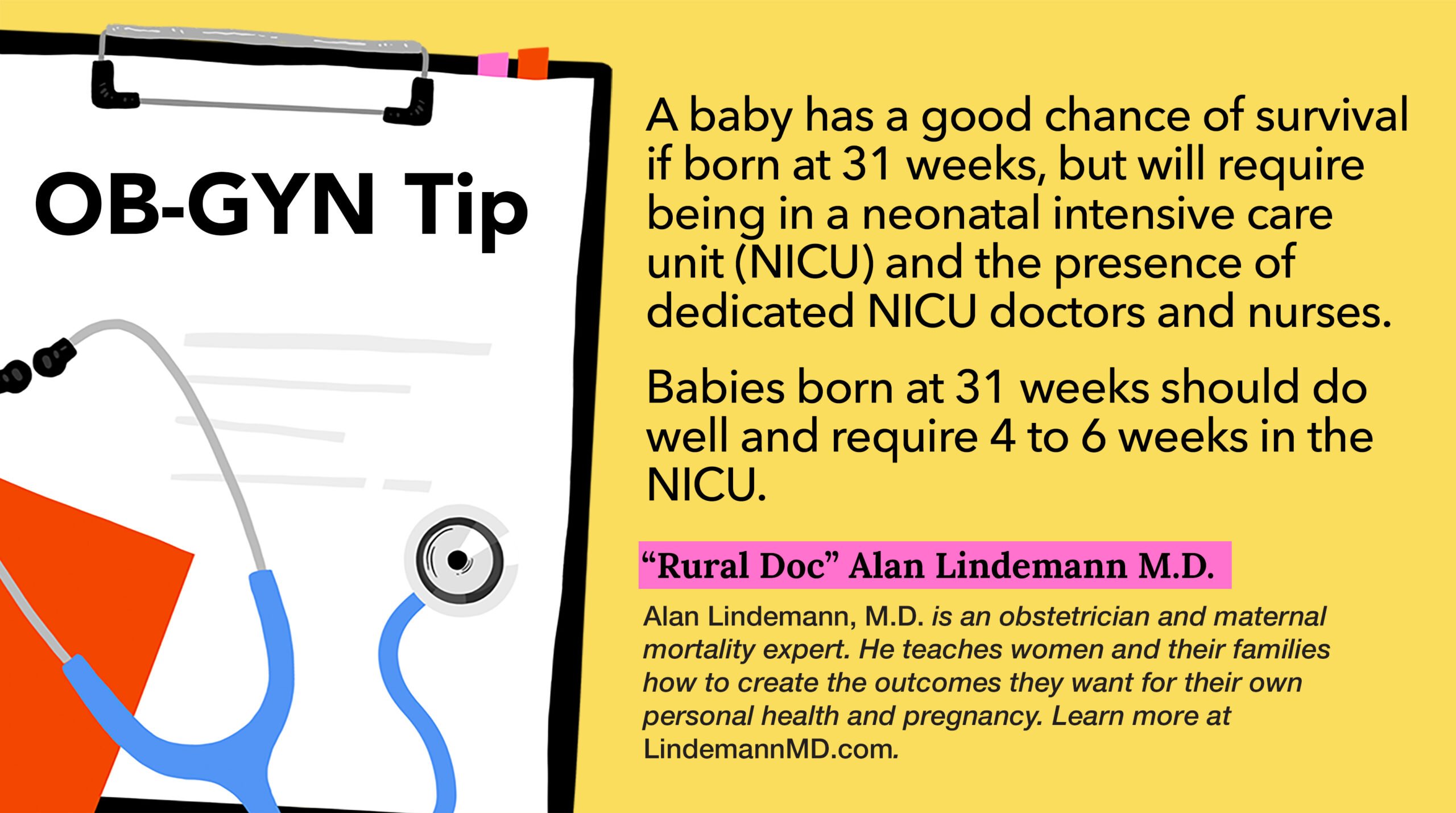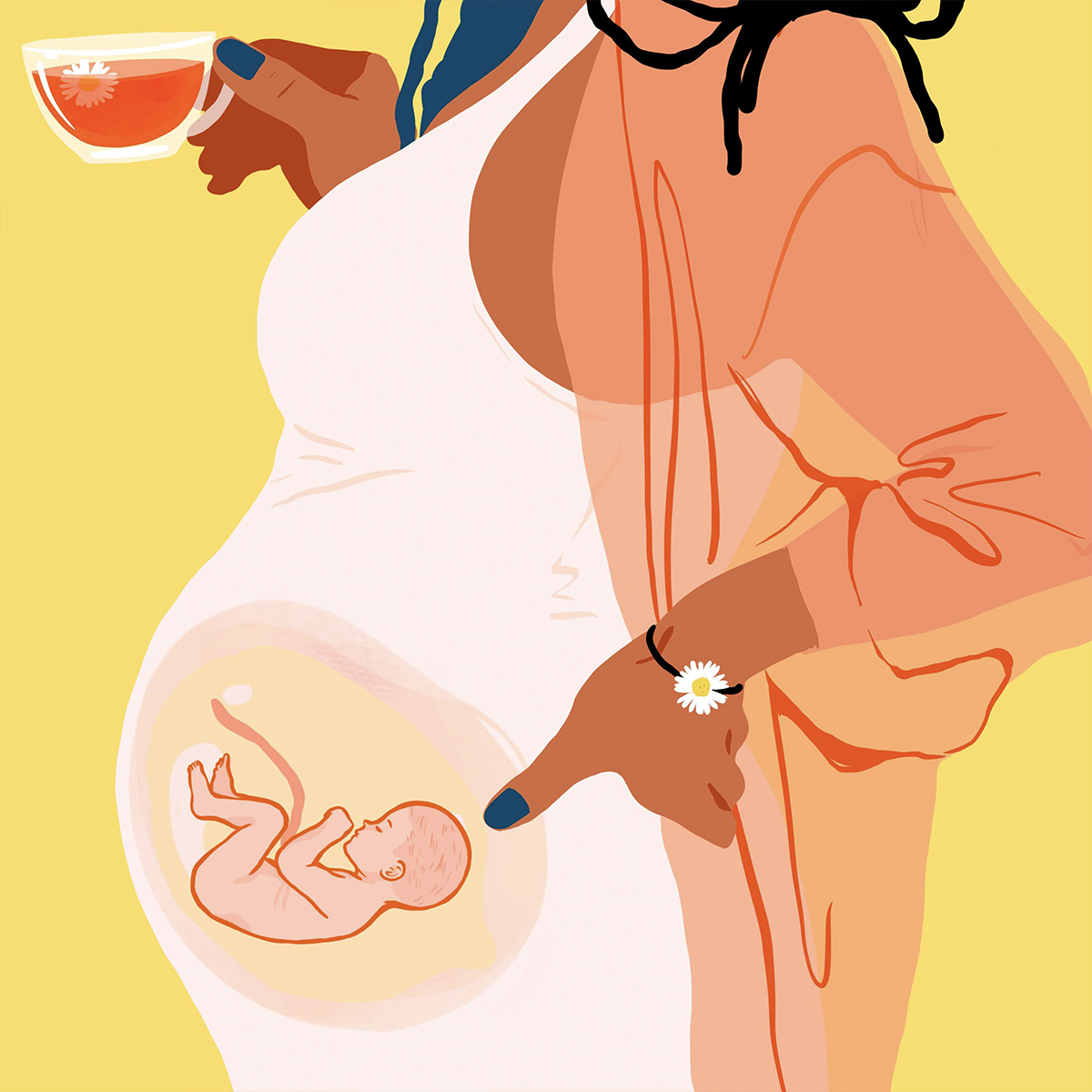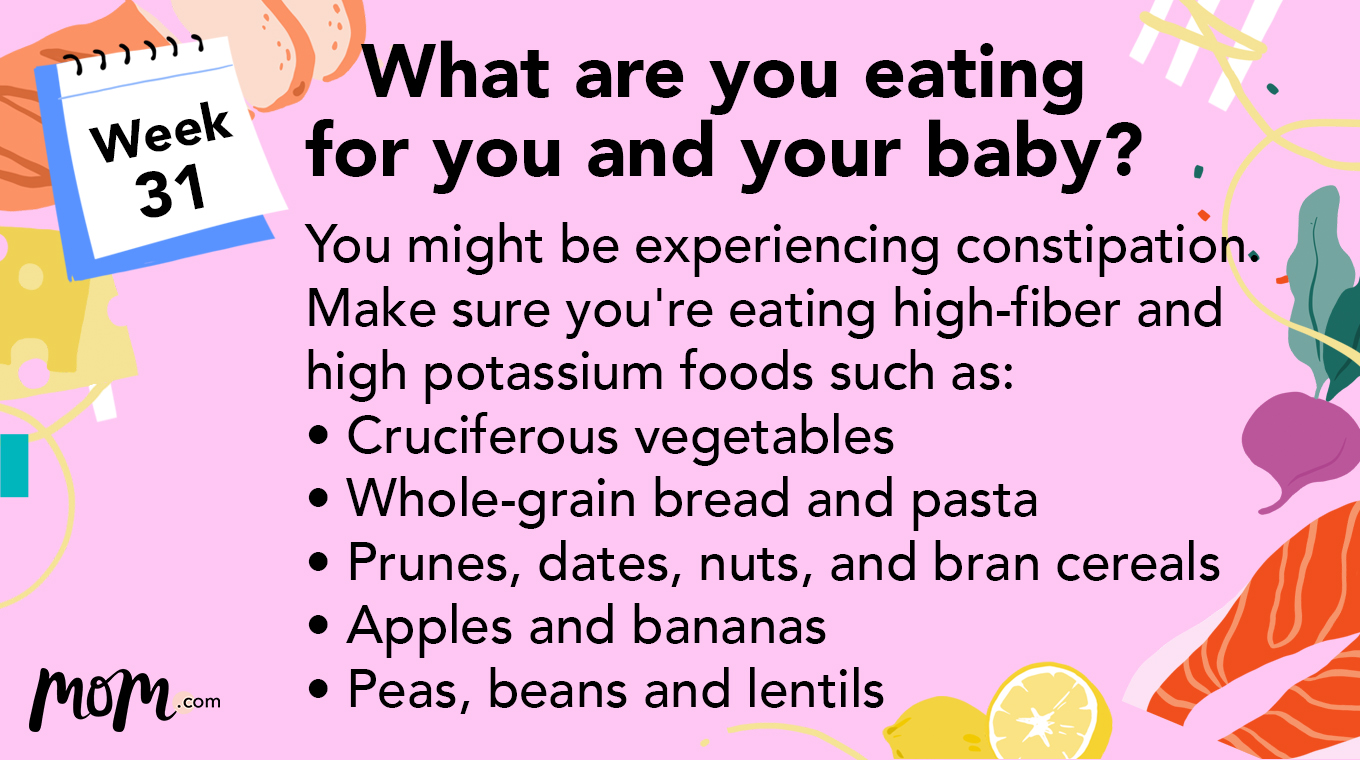
In this article
You’re 31 weeks pregnant!
At 31 weeks pregnant, your baby is likely gaining about a half-pound each week and their brain is growing and developing quickly. Right now your little one is about the size of a bowling pin! Your baby is able to track light, and nerves are developing and making connections that come from all of their senses. Baby is moving around quite a bit, which will feel reassuring. You may begin to notice patterns of when your baby is active, so that’s something fun to watch out for as well.
Another thing of note: If you’re concerned about having your baby early, Dr. Alan Lindemann helps shed some light. “Babies born in weeks 31 through 35 are considered preterm. In all preterm births there is the question of why. Why would a delivery occur early. Is it group B strep or other infections?” he told Mom.com.
“By weeks 31 through 35, many babies weigh 5 or 6 pounds. They do well in the NICU and the only problem besides their prematurity is their reason for being preterm” Dr. Lindemann advises parents to look for a cause of the pre-term birth, especially if they’re planning more pregnancies.
Pregnancy symptoms at 31 weeks

You may notice that you lose your breath quickly now, just with minor exertions or climbing up a flight of stairs. This is normal as your baby is growing and putting more pressure on your lungs. Leg cramps are quite common, often due to low potassium levels and you’re likely running to the restroom more often these days.
Insomnia
Restless legs and sleepless nights are common in the third trimester. You may have difficulty finding a comfortable position to get some rest in or you may notice that you’re hungry at 2 a.m. and in need of a healthful snack. Be sure to stay hydrated throughout the day, invest in a pregnancy pillow for comfort and try to eliminate screens about an hour before bedtime.
Constipation
Constipation is common during pregnancy, so do what you can to ensure you’re taking in enough fiber and drinking water. Getting out and taking a walk around the block can also help.
Hemmorrhoids
It is common for pregnant women in the third trimester to experience hemorrhoids. These are veins in the rectum that swell and can often cause pain and discomfort. Soothing witch hazel pads and creams can help, just be sure to ask your doctor. Much like constipation, getting up and walking when you can is a good way to relieve pressure and provide relief from discomfort.
What does 31 weeks equal in months?
At 31 weeks pregnant, you’re nearly 7 months pregnant</strong>; 6 months and 3 weeks, to be exact. You’re nearly there and ready to meet your baby very soon.
Your ultrasound
If you’re scheduled for an ultrasound at 31 weeks pregnant, chances are you’ll be able to get some great shots with a 3D/4D scan. These usually take place between the 24th and 32nd week and offer an incredible image of your baby. If you’re watching the screen during this ultrasound, you may even catch a glimpse of your baby’s eyelids opening and closing.
Your pregnant belly at 31 weeks

You’re likely feeling very full and round at 31 weeks. You may notice that your linea nigra has darkened and overall your veins are showing much more prominently; increased blood flow and amniotic fluid are the cause. Wear comfortable and loose fitting clothing that allows you to breathe.
Pregnancy tips at 31 weeks
- 31 weeks is the ideal time for some self-care, you’ve only got about 9 months left until your due date, so it’s a good idea to get any pampering in now, while you can. Indulge in a prenatal massage and let yourself relax a bit.
- If you haven’t done so already, now is the ideal time to ensure everything is in order for maternity leave if you need to take it. It may be a good time to tie up loose ends, write up manuals and provide information and systems to be sure your work can be completed by a co-worker while you’re away. You may even be called upon to help train your temporary replacement, so begin thinking about what that might look like now.
- On a related note, if you haven’t chosen a childcare provider after your maternity leave is over, now is the time to begin checking out facilities and beginning the interview process. You may even need to put your child on a wait list, so don’t wait until the baby is born. Getting the logistics of childcare out of the way now will save you time and energy later so you can enjoy getting to know your new little one.
Your pregnancy checklist at 31 weeks
- Work out a birth plan if you are bringing one to the hospital with you. Remember that you’re in charge of yourself, your baby, and your body. Having your wishes and ideas laid out on paper can help you stick to your preferences and give you the confidence you need to make sure your wishes are adhered to when you’re in the middle of the excitement of labor and delivery.
What are you eating for you and your baby?

Constipation could be an issue you’re facing at 31 weeks pregnant. If so, be sure you’re consuming a variety of fresh fruits and vegetables and eating high-fiber and high potassium foods.
- Cruciferous vegetables (Brussels sprouts, cabbage, cauliflower)
- Whole-grain bread and pasta
- Apples and bananas
- Peas, beans and lentils
- Prunes, dates, nuts, and bran cereals
When to call your doctor
Braxton-Hicks contractions are generally a normal and harmless tightening of the uterus as your body is getting ready for delivery. They usually dissipate after a few minutes but if you notice that they’re becoming stronger and more frequent, contact your doctor to be sure you’re not showing signs of preterm labor.
Also call your doctor if you experience any of these:
- Bleeding
- Excessive vaginal discharge
- Contractions and cramping that won’t go away
Pregnant women are at a higher risk of illness as a result of a COVID-19 diagnosis and those diagnosed with COVID-19 have an increased chance of delivering pre-term (before 37 weeks), according to the Centers for Disease Control and Prevention (CDC).
Note: If you are visiting your doctor during COVID, be sure to confirm that the doctor’s office is following COVID protocols as indicated by the CDC.
Additional considerations: Preeclampsia
Preeclampsia is a complication that can occur later in pregnancy that often lacks physical symptoms that would alert you something is wrong. Throughout your prenatal appointments, your practitioner has been monitoring your blood pressure and checking for protein in your urine. Preeclampsia can cause significant damage to your kidneys and if you’re at risk, it might be a good idea to keep a home blood pressure monitor on hand. Be aware if you’re experiencing nausea or vomiting later during your pregnancy and let your doctor know. Consult the Preeclampsia Foundation website to learn more about this pregnancy complication.






